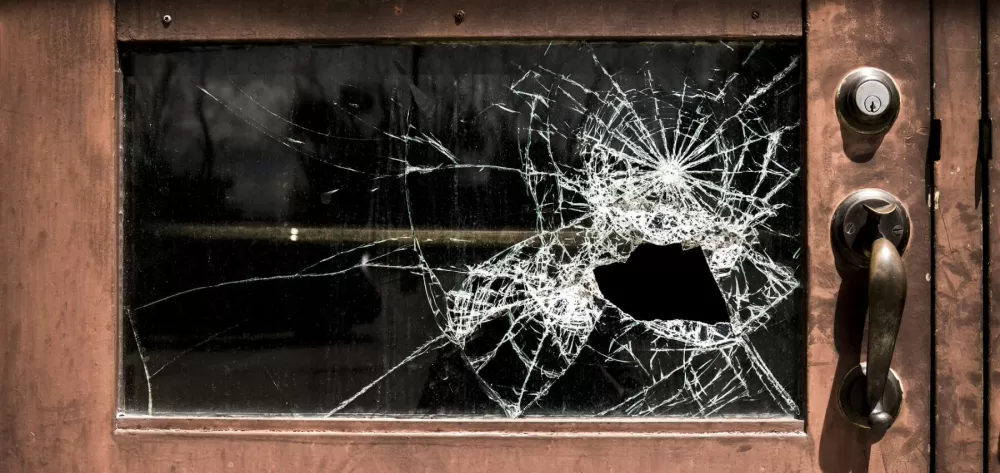Are there damages in your rented home which your landlord has been putting off repairing? Under some circumstances, you as the renter can withhold rental payments from the landlord. This process is called rent depositing. But there are strict rules, and you still have ongoing monthly expenses. You can find all of the important information about rent depositing in this moneyland.ch guide.
How does rent depositing work?
Certain repairs in rented homes are the landlord’s responsibility to repair. If your landlord does not make these repairs, you can deposit the rent at your cantonal arbitration office. The requirement is that the damages meet certain criteria, and the you stick to certain formalities. Rent depositing is only possible for real estate, and not for other rented property like rental cars or rented furniture.
How does rent depositing help me?
When you deposit your rent, you put pressure on your landlord to make needed repairs. When you deposit the money, your rent is legally paid – but the money is withheld from your landlord until they fulfill their obligations. So they have a direct interest in repairing what needs to be repaired in your home as quickly as possible.
Which repairs are the landlord’s responsibility?
As a basic rule, repairs which are not classified as minor maintenance are the landlord’s responsibility. Minor maintenance includes all repairs which can be performed without any special qualifications or help from an expert, or which renters can easily take care of themselves without much effort. You as the renter also have to cover replacement parts which cost less than 150 francs.
With the exception of normal wear and tear, damages which you as the renter inflict yourself are also your own responsibility, and not your landlord’s. Responsibility to prove that you caused damages lies with your landlord.
In order for you to deposit your rent, your landlord must have a legal obligation to sort out the problem (problems with your rented home, for example). Your landlord also has to be able to do something about the problem. You may be bothered by the noise of construction across the street, but solving that problem is not within your landlord’s responsibilities (unless he is the one constructing).
Document the problem as precisely as possible. Taking photos of things which need to be repaired – and the possible damage they cause – is a good move. Keep the photographs and all correspondence with your landlord in case you need them later for arbitration or a court case.
Which rules apply to rent depositing?
Before you deposit your rent, you have to inform your landlord one last time in writing about the problems which need to be repaired, and give deadlines for repairs. The letter must also state that you will deposit the rent if problems are not repaired by the given deadlines. It is advantageous to send the letter by registered mail so that you have proof in case of future legal action.
Only if your landlord neglects the deadlines and does not either repair the problem or initiate the repair process can you move on to depositing your rent. Your landlord has the right to dispute deadlines if they feel the timeframes are not realistic.
Once you begin the rent depositing process, you must inform your landlord about this in writing. Important: In order for the rent deposit to be valid, it must be completed before the regular due date for your rent. If your rent for February has to be in your landlord’s account on the first day of that month, then you will have to deposit it before the end of January. Failing to deposit the rent on time is identical to not paying your rent on time, and you risk the landlord terminating the rental agreement.
What is a realistic deadline for repairs?
That depends on the kind of problem in question. Ask yourself these two questions:
- How difficult is the repair? If, for example, the spare parts for an elevator are not immediately available and the lift could not realistically be repaired within a few weeks, then a short deadline is not appropriate.
- How urgent is the problem? If, for example, the heating system fails in the dead of winter, then setting a tighter deadline is more easily justifiable than if the same problem occurred in the summer.
According to the Swiss renters’ association, a deadline of two weeks is appropriate in many cases. They also recommend choosing a timeframe which allows you enough time after the deadline to deposit your rent if necessary. So if the rent is due on the first of each month, you will want the grace period to end several days before the end of the month so that you can deposit your rent if the landlord has not met the deadline.
What should I consider before depositing my rent?
It is a good idea to remind your landlord about the problem many times before threatening them with a rent deposit. After all, depositing your rent is a last resort to put the pressure on, and your relationship with your landlord will most likely suffer because of it.
Getting legal advice before settling on a rent deposit also makes sense. In extreme cases, it could set off a long-winded and possibly expensive process. You can normally get basic legal advice for free at your regional arbitration office for rental agreements. You can find out which office is responsible for the region in which your rented home is located on the website of your cantonal government.
Regional renters’ associations also offer legal consultation, but non-members must pay for this service. Consultation is normally provided over the telephone.
Some legal insurance offers include free consultation for customers. In every case, if you have legal insurance, you should contact your insurance provider before depositing your rent. If you do not inform the insurance company, you run the risk that they will refuse to cover costs related to resulting disputes. The exact procedure is different from one insurance company to the other, so contact your insurance company directly or get informed on their website.
Where do I deposit the rent?
The exact office at which you deposit your rent depends on where your rented home is. You can find out which arbitration office is responsible for your region on your cantonal government’s web page. Contact the regional rental agreement arbitrator. They will inform you about the account into which you must deposit the money. You can normally get legal consultation at the arbitration office as well.
What happens after I deposit my rent?
Ideally, having the rent withheld from your landlord should encourage them to tackle the problem. But because there is no way to be sure, you should file an arbitration case at the office. For example, you can demand that the landlord resolve the issues, or request a rent reduction or compensation. You can get a sample form for arbitration claims from the Federal Office of Justice (FOJ). If you have questions about what to include in the claim, the best thing you can do is to contact your regional arbitration office and ask.
Important: The arbitration form must be submitted within 30 days from the time you deposit your rent. If you do not submit it on time, the deposited rent will be passed on to your landlord – even if they have not resolved the problem.
Does depositing my rent save me money?
In practice, you pay exactly the same amount of rent which you would normally pay to your landlord directly. The only difference is that the money does not go straight to your landlord, but is held in escrow by the government office. Your running costs remain exactly the same, and you do not spend any less.
Depending on the situation though, you may be reimbursed for part of the money you deposited retroactively. This could happen if, for example, you win an arbitration case in which you filed for a rent reduction or compensation.
What does rent depositing cost?
Rent depositing itself does not cost you anything. But legal and counterparty costs can result if the arbitrator is unable to bring you to an agreement and one party decides to file a legal case. Having legal insurance can be beneficial in that case.
Important: Legal insurance will only cover problems which occur after you take out the insurance. Problems which already exist when you get insured are not covered. You also have to make sure that your specific legal insurance covers that kind of disagreement with your landlord.
Can the landlord end our rental agreement if I deposit the rent?
No, as long as all the conditions for rent depositing have been met, the landlord cannot terminate your contract for that reason. The rent has been paid, from a legal standpoint, even though the landlord did not yet receive it. On the other hand, if you do not fulfill all of the requirements, or deposit your rent late, your landlord could have grounds to end the home rental.
Do I have to deposit the full rent?
Partial rent deposits are possible in some cases. For example, you could deposit only the amount necessary to cover the expected costs of the repairs.
But because rent depositing is a tool for pressuring your landlord into action, there is absolutely no reason to deposit just part of the rent. A partial deposit will unnecessarily weaken your position in relation to your landlord. The Swiss renter’s association also recommends depositing the full rent due.
Can supplemental utility costs be deposited as well?
Yes. Supplemental costs which are covered by your rental agreement can be deposited. That means you can deposit the full gross rent.
When is rent depositing not possible?
You generally cannot deposit your rent if the criteria already covered above are not met. Rent depositing is also not possible in the following cases:
- The problem has already been resolved. You cannot deposit your rent if the problem has already been taken care of. In that case, you should pay the rent directly to your landlord. That also applies if you have sorted out the problem yourself and your landlord owes you compensation.
- The complaint is about maintenance or renovation. As the renter, you have to endure inconveniences associated with work that is required to solve problems or to repair or prevent damages.
- The costs of repairing the problem would be disproportionate. Example: The entire heating system would need to be changed, but the building has already been condemned for demolition.
- You have already given notice on your rental home and the problem could not realistically be solved within the remainder of your rental term.
Can I simply refuse to pay my landlord the rent?
No, that is not allowed. If you simply withhold the rent because of unresolved issues, that would be considered a late payment. By paying your rent late, you give your landlord allowance to terminate your rental agreement. If, on the contrary, you correctly deposit your rent at the correct office on time, your rent is considered paid and your landlord does not have grounds for termination.
Can I choose to pay lower rent myself?
No. Not paying your full rent as per your contract can also give the landlord grounds to suspend your rental. But you can request a rent reduction at the arbitration office. If your landlord agrees to compensate you or the arbitration rules in your favor, then part of the deposited rent will be returned to you.
Can I terminate a rental agreement without notice if problems are not resolved?
That depends on how severe the issues are. For home rentals, notice-free termination is only legally possible if the problems make the home unlivable. That could be the case when, for example, the heating completely fails during the winter and is not repaired within several days.
More on this topic:
How to deal with damages to rental homes
Compare Swiss legal insurance offers now






